Turning The Gambling Table Over. What's Wrong With The Gambling Industry And What The Government Wants To Do About It
The legalization of the gambling market in Ukraine, which started in 2020, has shown that, to put it mildly, there is a vast difference between the meaning that was put into the term “legalization” and what has happened over the last four years.
Instead of creating a civilized industry with transparent rules, controlled taxation and protection of people from an aggressive industry, we got a completely opaque, highly toxic, chaotic and unclearly controlled market that instantly fell on the heads of Ukrainians, taking about UAH 200 billion from their pockets every year, according to the NBU.
The established market regulator, Commission for Regulation of Gambling and Lotteries (CRGL), turned out to be an unviable and corruption-laden structure that failed to create an online monitoring system in four years, but has established licenses for Russian businesses and is mired in “shady deals” and “schemes.”
Tax collections have not yet reached the level of real market turnover, and MPs and the NBU are looking for gaps and schemes used to circumvent them, patching the gaps up along the way.
At the same time, the market has become so profitable that the scale of advertising campaigns has become unprecedented, and the system of luring people into the game has become a national threat.
The authors of the legalization, together with the CRGL, were keen on issuing expensive licenses quickly and did not take care of tools to protect people from aggressive actions of market operators and did not create a working system to help overcome gambling addiction and protect users against it.
In fact, citizens found themselves face to face with an aggressive industry and its technologies and unlimited budgets. As a result, Ukrainians spend more on gambling than they donate to the Armed Forces.
The response to all this had to come from the level of the National Security and Defense Council and the President of Ukraine, which introduced “measures to counter the negative effects of online gambling” in April 2024. I would like to emphasize that the NSDC decision concerned the work of the already legalized industry.
Today, it is clear that, whether intentionally or not, the authors of the gambling market launch have rolled out a completely “raw product,” whose falsity and the need for changes in which has already been recognized at all levels, from the parliament and the government to the Presidential Office.
This position is endorsed by Ukrainians. In a sociological survey commissioned by ZN.UA and conducted by the Razumkov Centre in June 2024, respondents were asked: “Do you think the legalization of gambling in Ukraine was the right decision?”
As much as 44.7% of Ukrainians — almost half of the respondents — consider the decision to legalize gambling to be wrong. 21% are undecided, and 34.2% support its legalization. Instead of perceiving the legalization of the gambling market as part of a global trend that brings billions of hryvnias to the budget and somehow protects people and their money from fraud, people did not appreciate the 2020 reforms.
Changes are needed.
And they are promised.
In the near future, a radical gambling reform is planned, including changes in licensing, taxation and control rules, which should turn the toxic market into a normal civilized industry that exists all over the world.
Part of this reform is the draft law No. 9256-d “On Amendments to Certain Legislative Acts of Ukraine to Combat Gambling Addiction (Ludomania) and Improve State Regulation of Activities Related to the Organization and Conduct of Gambling and Lotteries,” which MPs want to vote on in October-November.
However, this draft law is only a part of the overall reform of the game rules.
Let's try to understand the changes that the industry needs and what is planned to be implemented. One of the government's concepts of possible changes, which I have at my disposal, will help us to do so.
Eliminating the stillborn CRGL is a top priority
So, the reform itself is planned to be implemented in several stages.
The first is the stage of “market whitening” and detoxification. Its task is to create a normal, healthy and transparent platform and working conditions on which it will be possible to build a commercial, not criminal and corrupt gambling market.
The first stage of the reform includes:
- liquidation of the CRGL and creation of the Gambling Regulatory Agency (GRA);
- changing the approach to taxation;
- connecting market operators to the unified payment system defined by the NBU;
- reformatting the approaches to issuing licenses and verifying licensees;
- the possibility of converting cryptocurrencies when making payments.
I emphasize that this is currently only a concept that may be subject to changes and adjustments, but the vector for change seems inevitable.
Draft law No. 9256-d by Danylo Hetmantsev, which we are promised will be adopted very quickly in the second reading, is part of this plan and coincides with some of the points of the first stage of the big reset.
The draft law states that instead of the CRGL, a “central executive body that implements state policy in the field of organizing and conducting gambling” will be created.
If the law is adopted, the new body, the Gambling Regulatory Agency (hereinafter referred to as the GRA or the Agency), will lose much of the autonomy and collective irresponsibility that existed in the CRGL and led to the loss of market control and corruption of the Commission itself, but will gain some control and oversight from the government.
The basic functions of the GRA actually duplicate the list of powers of the CRGL:
- issuance/revocation of licenses;
- verification and control of payments;
- detection of illegal operators;
- making decisions on blocking websites.
At the same time, the mechanics of control over the Agency itself and its ability to control the market are changing. The draft law No. 9256-d introduces mechanisms and tools for the GRA to conduct control purchases of bids, checks of operators' work with the help of bots and the possibility of programmatic control of payments. In other words, the GRA is given practical control tools.
It is not yet known to whom the Agency will be subordinated; the draft law states that it will be directly subordinated to the government, but it is likely that it will de facto be controlled by the Ministry of Digital Transformation. This version seems logical, given that the submission of licenses and their receipt are planned to be implemented through the Diia portal. At the same time, the verification will be automatic, without manual intervention of the Agency and without physical access of licensees to its members.
It is not yet clear how, in the case of automatic verification of licenses, operators with Russian or criminal capital will avoid buying them by simply registering an LLC for a front person with a Ukrainian passport.
However, it was the elimination of the human element in the issuance of licenses that was the main motivator for the liquidation of the CRGL, although it is not clear what safeguards against corruption will be in place in the GRA, how much this body will be protected from the influence of law enforcement agencies and individual officials, which, in fact, was the problem with the CRGL. But perhaps we will see this in a broader draft presentation of the reform.
Taxes are high, but they are not paid
The legislator wants to change the taxation of the gambling business. Payment systems have become a tool for tax schemes.
That is why the second point of the first stage of the reform is the concept of changing taxation and payment systems, which will be taken under direct control of the NBU. This radical step in the reform should solve the industry's most important problem — tax evasion and uncontrolled movement of gambling funds by the authorities.
Let's be honest: today, no one understands how much money is actually circulating in the gambling industry. Moreover, no one understands the limits of tax revenue for the budget, as operators use different optimization tools at different stages of their payment.
For comparison and understanding:
- In 2021, the gambling industry paid UAH 204.8 million in taxes;
- In 2022 — 730.9 million;
- in 2023 — 10.4 billion;
- for the first nine months of 2024 — already 13.5 billion (the forecast for the year is 17–18 billion).
The figures are more than eloquent.
The gambling industry is constantly in a race with MPs and the NBU to find tax optimization schemes and close these gaps.
Miscoding, drops, etc. We discovered these words and schemes around the same time as the legalization of the gambling market, which once again shows that the tax infrastructure is completely unprepared for the legalization of this market. Although, let me remind you, experts warned about this scenario back in 2020.
And even though gambling taxes in Ukraine are among the highest, this is compensated for by the traditional optional nature of their payment.
Theoretically, the market should pay 18% of income tax, 22% of unified social tax, 10 to 18% of gross gaming revenue (GGR) and 19.5% of tax on player winnings.
In practice, as I have already mentioned, some are running away, others are catching up. And no one knows the real turnover in the gambling business.
A radical idea is to temporarily replace the most optimized 18% GGR and 18% income tax with 5% of gross revenue taken “at the entrance.” Separately, it is proposed to add 2.5% (why not 3.5?) of the military tax.
I'm not an economist, so I won't assess the advantages or disadvantages of this approach to taxation, but we have this idea. Whether this will increase budget revenues is unclear, as the reform concept available to me does not contain these calculations, but I think they must be somewhere because changing the tax burden to something that will lead to a decrease in contributions to the treasury will be difficult to explain to society.
The idea of creating a single payment system to which all gambling market operators will be connected goes hand in hand with the tax changes.
It should either be created by the NBU from scratch or selected from the existing ones at a tender. This payment system will be under constant special monitoring by the regulator and, in addition to enhanced control, will have the right to convert some cryptocurrencies within the framework of market operators. I understand that this should roughly coincide with the legalization of crypto in Ukraine.
Now I will try to elaborate on this step a little bit.
Payment systems have indeed become part of the “gambling syndicate” and have entered into deep cooperation with both market operators and the CRGL.
They do not just service financial transactions on market conditions, but openly facilitate various schemes of tax evasion, circumvention of money flow monitoring, etc. Without the assistance of payment infrastructure, this would not be possible.
The most striking example is the Diamond Pay payment system, which recently lost its NBU license for having beneficial control by Russian citizens.
During the NBU's inspections, it was found that this system became an artificial monopolist in gambling money processing, serving 70% of the market, facilitated tax evasion within the drop scheme by making impersonal payments, and during the blocking of funds of vBet and Pin-UP operators by financial monitoring, accepted player payments and paid out winnings without completing payments to already blocked accounts.
The icing on the cake was the fact that the family of one of the key members of the CRGL, Yevhen Yakhnii, received payments from Diamond Pay. His wife was systematically paid hundreds of thousands of hryvnias “for design services.”
To make matter worse, Diamond Pay is just one example that the country has luckily learned about. Therefore, putting things in order in this matter and creating a single reliable and transparent payment system for the entire industry seems only logical and correct.
That said, we can discuss market freedom here. But the market has discredited itself. So it's 1:1.
This is the end of the first stage of the reform because, as I have already mentioned, its task is to “whiten the industry” and create a springboard for a healthy and transparent market.
Opening the market to foreign operators and launching payment monitoring
The first step of the second stage is to launch the State Online Monitoring System (SOMS). This project is a cornerstone of the entire history of gambling legalization, as it allows real-time monitoring of data on each betting operation, refund, payout, etc. This system is also an important element of protecting players from ludomania (gambling addiction).
However, the key thing about the SOMS — and this explains why online monitoring has not been implemented four years after legalization — is that the system actually makes tax evasion impossible. In today's infrastructure of a legal, but fraudulent market, no one objectively needed such a system.
Legally speaking, the CRGL had to implement the STS immediately after its creation. De facto, however, the Commission has been saying for all these years that the government does not provide funds for this. And the government says that the CRGL is not going to create anything and needs not money, but liquidation.
Claims against the CRGL for not creating this system have come from everywhere, from members of the government to MPs. But the Commission courageously and steadfastly did nothing, allowing market operators to earn billions bypassing taxes.
This inertia of the CRGL in creating online monitoring was one of the triggers for the reboot. Now this body will be liquidated, and the monitoring system will be put in place. At least that is what we are promised.
The next stage of the second part, after the launch of the SOMS, should be the opening of access to the Ukrainian gambling market for foreign gambling and betting operators.
The cost of a license for them will be much higher than for Ukrainian operators — approximately $10 million for a period of two years, and the placement of servers and the Agency's access to them via the GRA will be a prerequisite for entering our market.
The entry of foreigners is a sign of a healthy market, and this is possible only after the regulator is rebooted and transparent and clear market rules are created for everyone.
Next, it is planned to allow gaming aggregators to obtain licenses.
Such aggregators are platforms that combine different games and cooperate with many online casinos, giving them access to their products and games. To date, such platforms have not been licensed in Ukraine, but their admission will significantly expand the market of licensees and competition for players.
The third stage will analyze the effectiveness of the first and second stages and assess the effectiveness of the taxation scheme of 5% of gross revenue instead of 18% GGR and 18% income tax.
What to do with the online casino and betting advertising market
To conclude the conversation about changing the rules of gambling, let's talk about advertising. Why was it banned and in what format can it return? As I mentioned at the beginning of the article, the gambling and betting advertising market turned out to be much bigger than society can digest and withstand.
With an annual market capacity of more than UAH 200 billion (according to the NBU), and this is only the legal part, the budgets for online casino promotion after legalization eclipsed even pharmaceutical companies in the advertising market.
Advertising was oozing out of every pore, hundreds of top bloggers joined in with advertising integrations and direct advertising, Ukrainians' phones were ringing off the hook with cold calls offering to spin free spins, and almost every YouTube ad was also dedicated to gambling. It got to the point where market operators created platforms with pirated movies and TV series to promote their gambling products.
During the ZN.UA survey, Ukrainians were asked to evaluate gambling advertising.
Here are the results: 38.1% of Ukrainians believe that this advertising is always intrusive and aggressive.
30.5% believe that advertising is more often intrusive and aggressive.
8.2% — that advertising is not intrusive and aggressive most of the time.
3.3% — that advertising is never intrusive and aggressive.
Overall, 68.6% have a negative attitude toward advertising and consider it intrusive and aggressive in some respect.
In Ukraine, the format and volume of advertising have become a full-fledged tool of imposing participation in the game rather than an element of competition between casinos. The consequence of such massive targeting of Ukrainians, which had virtually no boundaries and rules, even in terms of age, was the spread of not only the number of players but also the disease of gambling addiction (ludomania).
According to statistics, the number of people with restrictions due to gambling addiction doubled in the first six months of 2024. During this time, 4,585 people were added to the register of gambling addicts. As of July 2024, there were 7,800 Ukrainians in the register, as evidenced by the data of the Opendatabot service.
At the same time, it is almost impossible to measure the growth in the number of players, as the real market size is unknown, and it is incorrect to measure it by the amount of taxes that are not clear in respect of who pays them and how.
However, it is quite possible to assume that amid such a massive advertising campaign, the number of players has grown approximately the same as the number of gambling addicts. The increase is manifold.
This is exactly what explains the desire of Ukrainians to return to the times when there was no gambling advertising and no imposition of “play and win lose.” Thus, ZN.UA asked Ukrainians: “Do you think online casino, sports betting and lottery advertising should be banned?”
74% of Ukrainians believe that online casino and sports betting advertising should be banned, while only 13% support the presence of advertising.
Not feeling the boundaries of what is permissible (and the state again forgot to outline these boundaries), the industry crossed all the red lines in the issue of advertising, for which it received quite justified public outrage and a red card from the NSDC / government in the form of a complete ban on advertising in May 2024 by Cabinet of Ministers Resolution No. 566.
We have traditionally slipped from one extreme — permissiveness — to the opposite — a complete ban.
The consequences were not long in coming...
Firstly, the lack of advertising for online casinos and betting contributes to the development of the illegal part of the market because where the state cannot address it by a ban, pirate and illegal resources are actively promoted.
Public advertising is a certain marker of legality for players.
Secondly, advertising is still a resource of existence for media and sports clubs, sports events and projects. In times of war and critical underfunding of sports, I think this resource is really important.
Sports sponsorship by the betting industry is a global trend that is hard to ignore and converts this money into sports development.
And thirdly, today, a complete ban on advertising plays into the hands of those online casinos that have captured and divided the market in recent years.
You won't believe it, but these casinos are the ones most interested in the non-return of advertising because it will allow them to secure their market shares forever without spending a penny on promotion.
Therefore, it will be impossible to bring any new, even international, gambling platform or game aggregator to the market, as there are no tools to inform players about its existence and benefits. It is prohibited by law.
Players will always remember the stupid casino ads that were hammered into their heads from every loudspeaker or page on the web.
That is why the online casino and betting advertising market in Ukraine should exist in some form, but it should be designed in such a way that it is a competition between operators, not the promotion of gambling addiction and the imposition of the game on even more people.
Particularly strict restrictions should be imposed on the use of war, military, media personalities, etc.
And most importantly, the game's advertising should warn and inform Ukrainians about the risks, problems and pitfalls of their participation in gambling.
Just as cigarette packs nowadays have 65% of their space occupied by a warning label and a scary picture of the consequences of smoking, casino and betting ads should contain such warnings for players.
Moreover, gambling advertising cannot promote gambling as a means of possible earnings (this is a direct guide to gambling addiction), but only as entertainment.
It seems that this is understood, and before the second reading of the draft law No. 9256-d, it was proposed to open a narrow access to the advertising market for gambling market operators. Albeit with very strict restrictions, this is still an access.
According to my information, advertising may be allowed in the media from 23:00 to 6:00, in specialized publications dedicated to gambling and sports, and online media intended for people aged 21+.
The issue of advertising on information-sharing platforms, videos, and search services is being considered separately, but is still being discussed, provided that it is technically possible to target advertising to persons over the age of 21.
At the same time, the law proposes:
- to prohibit any advertising of gaming bonuses, cashbacks, and free spins;
- to prohibit visual placement of operators' logos on any objects except for sponsorship
- to prohibit advertising mailings, cold calls (when you receive random calls and are offered to play in a casino), etc;
- to prohibit the promotion of charity and grants from industry operators.
It is also proposed to ban in advertising:
- the participation of persons under the age of 21;
- the participation of military personnel, volunteers, doctors;
- the participation of popular figures;
- the use of war themes and patriotic appeals.
Sports sponsorship is also proposed to be allowed in a certain format, but with stricter restrictions.
Summary
In general, the concept of the reform and the expected adoption of the draft law No. 9256-d really look like a first and good step towards the reboot of the gambling industry.
However, to be honest, in recent years, we have already experienced dozens of correct and necessary reforms in various industries, which initially looked decent and led us to transparency and efficiency, but very quickly brought new people into the schemes who were reformers just yesterday.
And the gambling industry is simply at risk in this regard.
We hope that everything will work out this time, but experience suggests that it is too early to relax. That is why we will continue to monitor the gambling business reform and inform the society about the progress in this race.
Please select it with the mouse and press Ctrl+Enter or Submit a bug










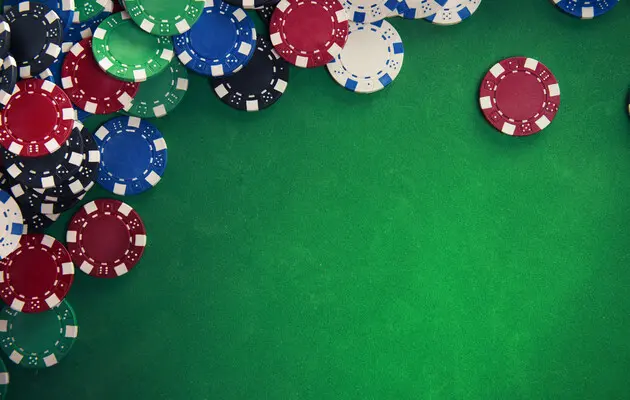


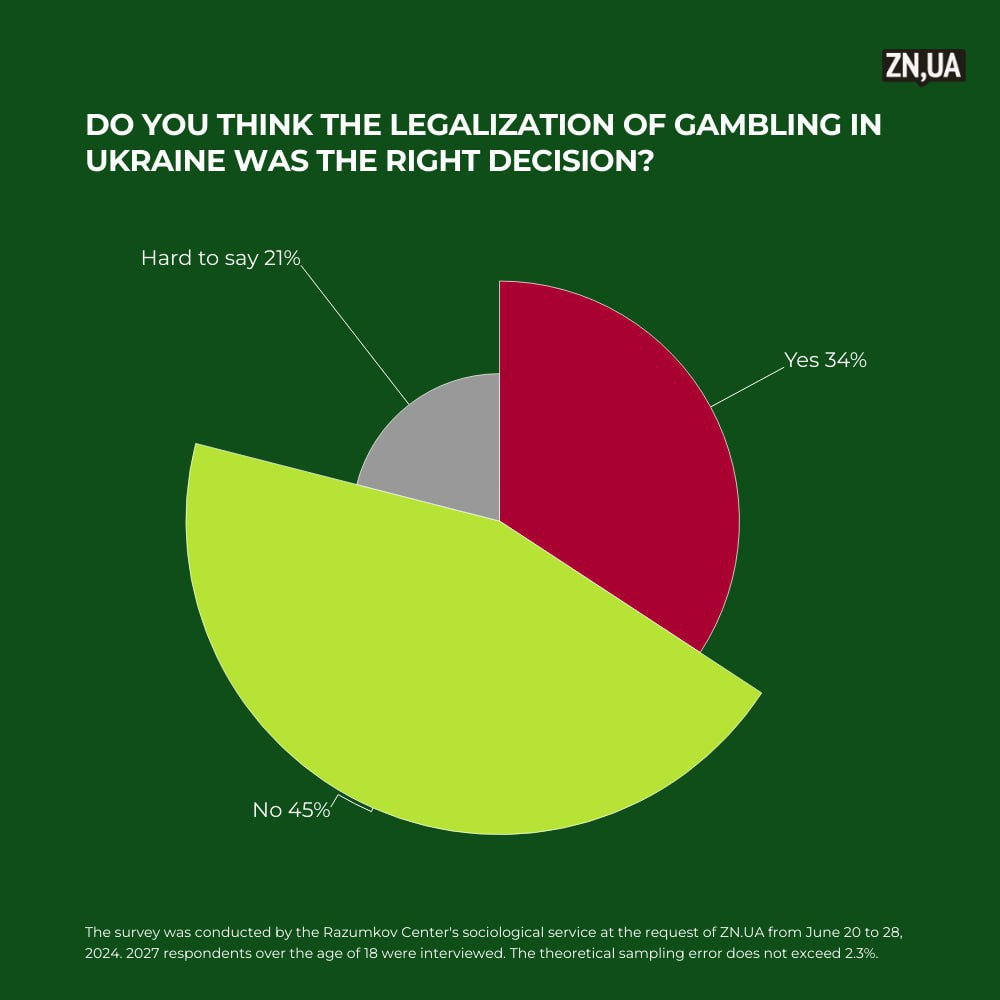
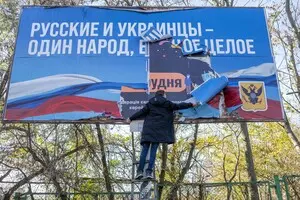

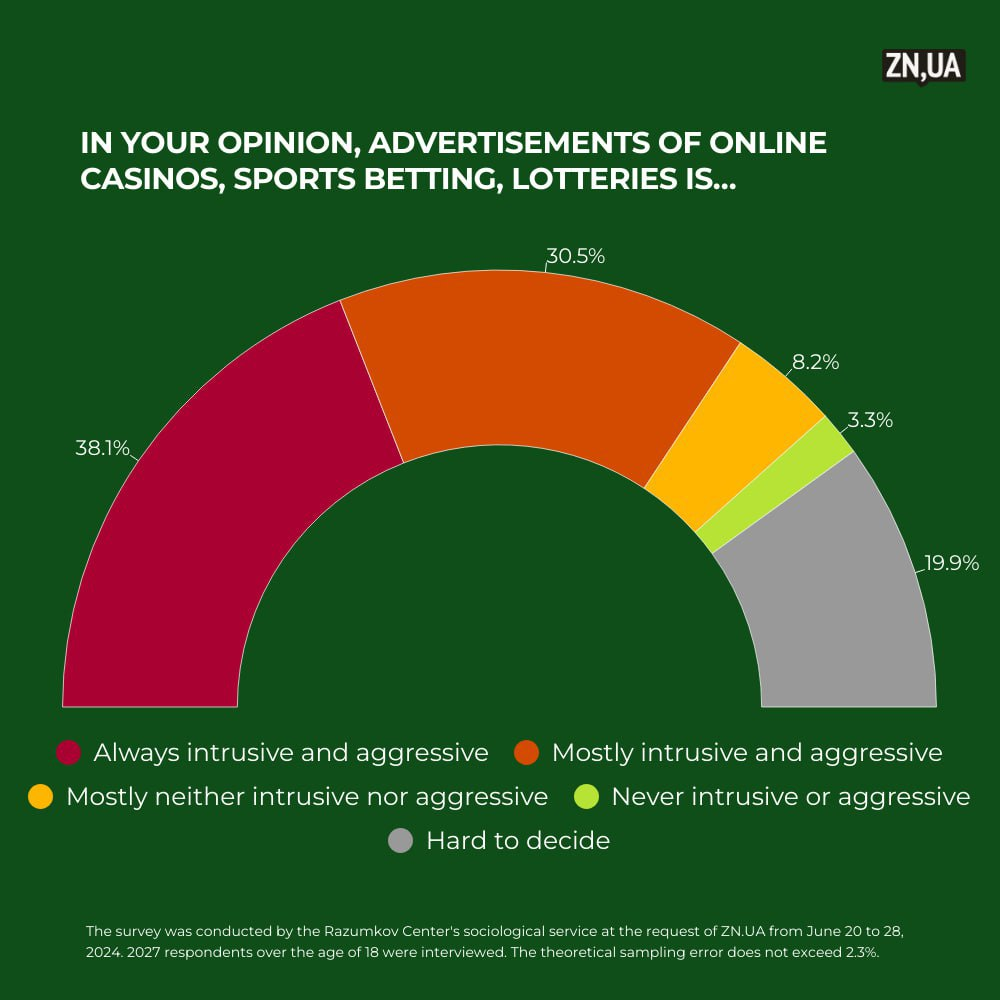
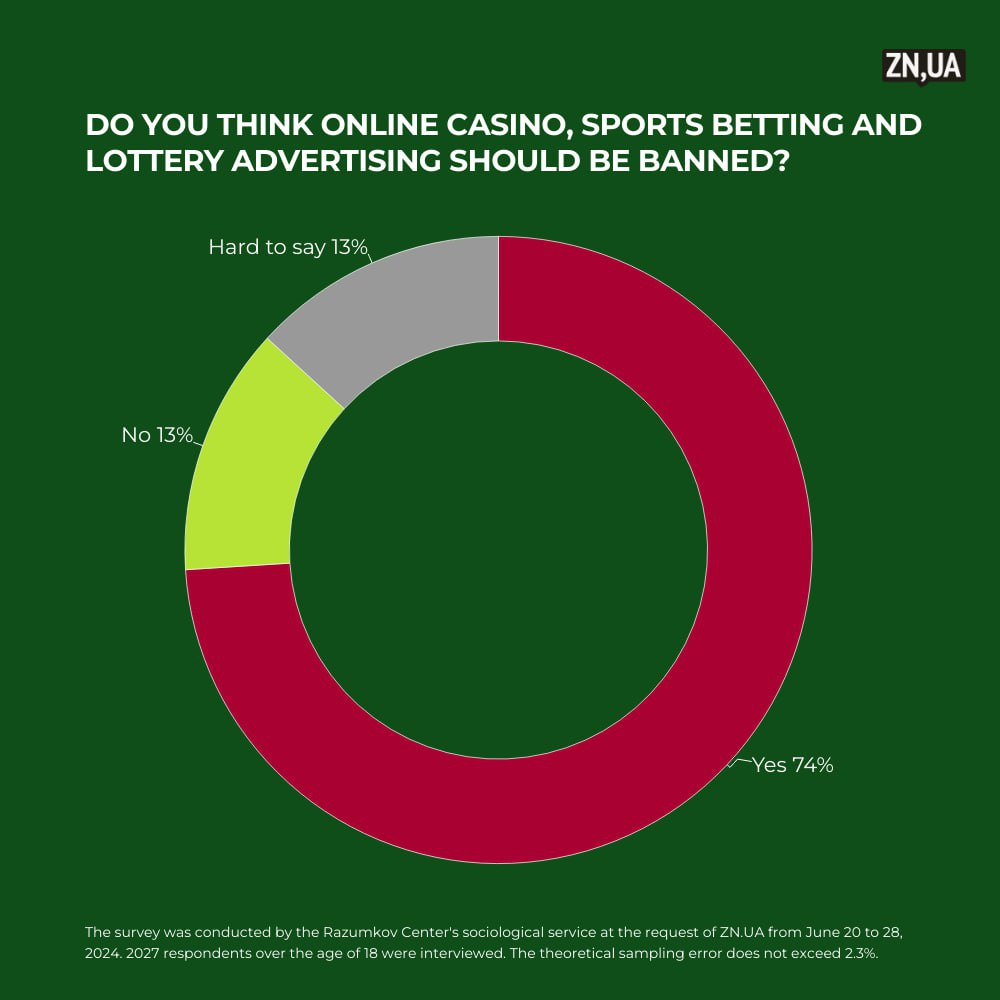
 Login with Google
Login with Google